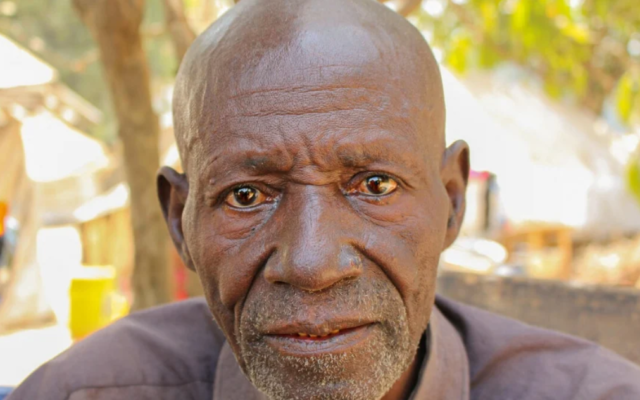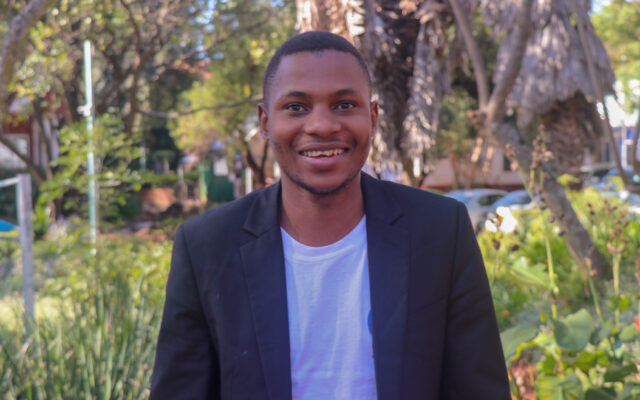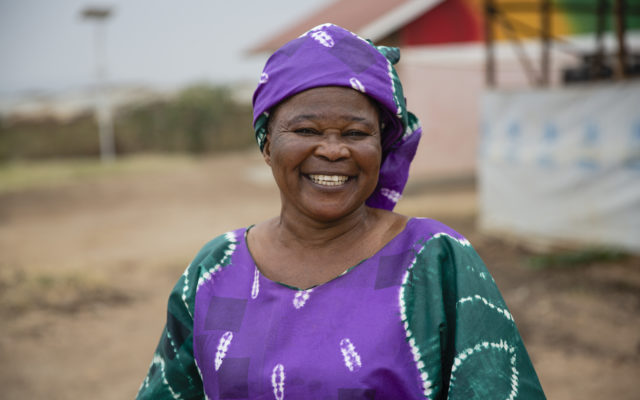A close friendship builds peace between communities in DR Congo
After conflict erupted between neighbouring communities in south-eastern Democratic Republic of the Congo, a long-standing friendship between two men helped bridge the divide.
30.05.23
Lifelong friends Kalonda (left) and Samueli (right) in the fields they work together outside Sango Malumbi village in the DR Congo’s Tanganyika province.
Friends since they first met as children beneath the tree that served as their classroom, the two men were forced to flee in different directions in 2017 when escalating inter-communal conflict between Kalonda’s Twa community and Samueli’s Bantu community reached their village. Kalonda, 41, fled to the nearby forest and Samueli, 39, to the city of Kalemie, 30 kilometres away.
“The conflict began all of a sudden, and we all had to flee our homes to save our own lives,” said Kalonda. “Each of us sought safety where we could. Sami sought refuge in Kalemie, while I found safety with my family in the bush. Those were the hardest times.”
“Deep down we knew that we were still friends.”
At the time, inter-communal conflicts were flaring in Tanganyika Province, tearing apart communities and villages, clawing at the social fabric and and eroding trust between neighbours and communities. When tensions eased and they could return months later, Kalonda and Samueli rekindled their friendship becoming symbols for how the two communities could heal their divisions and live together in peace and safety.
“Deep down we knew that we were still friends and when we returned to our village, we would continue to be friends,” said Samueli. “Between my family and Kalonda’s there was no conflict. The confrontation was between the militias. We can’t even imagine being enemies.”
“Our friendship is a childhood friendship,” added Kalonda. “When I got married, Sami gave me money to help pay the dowry.”
Role models
Kalonda and Samueli were among the many thousands who have returned to their homes since the end of 2018 to resume their old lives. But tensions and distrust remain, not least because residents often found their homes burned and crops destroyed, while widespread food shortages added to the stress and anger. “We faced enormous difficulties and the ensuing hunger was terrible,” said Samueli.
Today, Kalonda and Samueli have made themselves role models for forging and strengthening inter-communal relations. “The conflict brought a lot of unrest and exacerbated distrust and grievances between the inhabitants of Sango Malumbi. We wanted to participate in restoring ties and consolidating peace in our village. This is our motivation,” said Samueli.
The pair put themselves forward and were elected to the Sango Malumbi Village Peace Committee, one of 80 such groups set up by local people across Tanganyika since 2019. With the financial and technical support of the UN Refugee Agency, UNHCR, and its local partner AIDES, the committees are helping communities to live together in harmony once again.
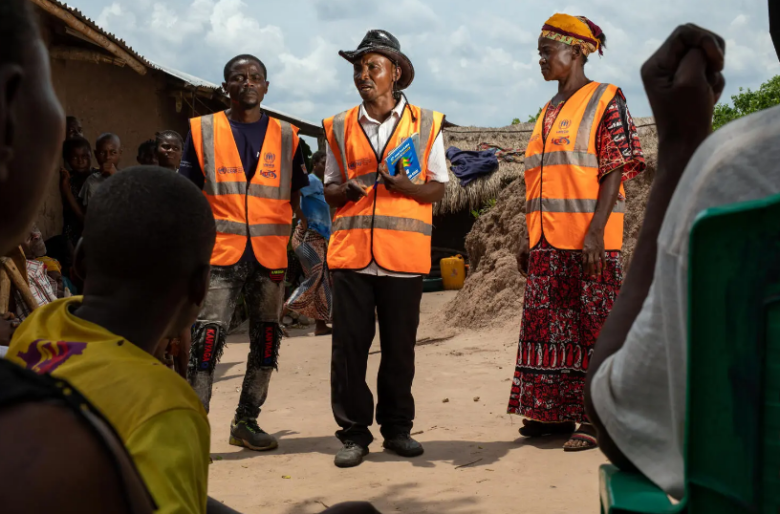
Members of the Village Peace Committee talk to villagers in Sango Malumbi. © UNHCR/Gwenn Dubourthoumieu
Each committee is made up of 20 elected men and women from the Twa and Bantu communities, tasked with various awareness-raising activities to improve communication and dialogue between inhabitants, and strengthen social cohesion.
“We are trained on protection and human rights, and we build awareness around different themes related to peace, and contribute to peaceful resolution of conflicts and prevent them from degenerating.” said Kalonda.
“The village chiefs and the populations in surrounding villages know of our Village Peace Committee and ask us for help with awareness raising, and when a problem occurs,” added Samueli.
Rebuilding trust
Alongside this grass-roots peacebuilding, the committees are involved in rebuilding trust, for example through the creation of community fields such as the one Kalonda and Samueli were returning from, where men and women, Twa and Bantu, work together to plant, tend, and harvest crops for sale at the market.
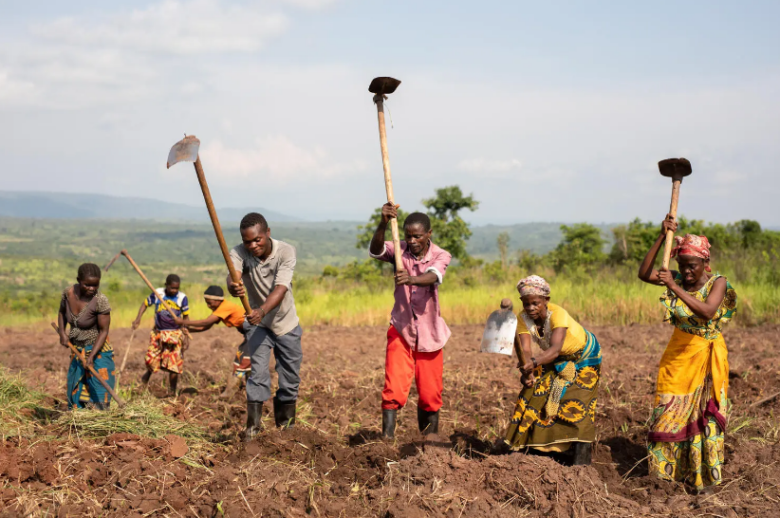
Samueli (centre) and other members of the Village Peace Committee at work in their community field. © UNHCR/Gwenn Dubourthoumieu
UNHCR and its partners are working to support the ongoing return of over 195,000 displaced people to safe villages in different parts of Tanganyika Province, a process to which Village Peace Committees have proven integral, encouraging local communities to strive for peaceful coexistence and to overcome a dangerous legacy of conflict and tension. In total, some 367,000 people remain displaced in sites or host families in the Tanganyika Province.
But with only 15 per cent funded of the $232.6 million the UNHCR, as of the end of April, needs for its response in the DRC in 2023, such vital initiatives risk running out of funds.
“Our village is a place where both communities live,” said Samueli. “The Village Peace Committee allows the village to continue to move forward and to resolve effectively small conflicts that could separate us. We hope to inspire others by maintaining peace, and that our children can grow together in peace.”


